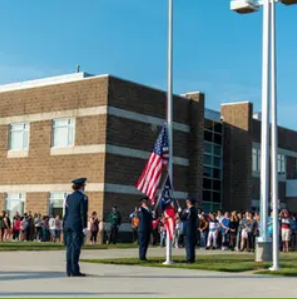Junior Reserve Officer Training Corps Pathway Overview

Criminal Justice & Legal Issues Pathway Courses
CRJ101
1 Credit + 3 College Credits
This course is a survey of agencies and processes involved in the administration of criminal justice. The survey reviews the functions of the legislature, police, prosecutor, courts, and the correctional system. Problems of law enforcement in a democratic society are discussed. This course ties together all components of criminal justice and includes issues of both the juvenile and adult offender.
CRJ205
1 Credit + 3 College Credits
This course introduces students to the sources of law in the United States, the differences between civil and criminal law, and the United States Legal System including federal and state judicial systems. Students will learn about several areas of substantive law such as criminal law, tort law, contract law, and family law.
04256
1 Credit + 3 College Credits
In this course, students investigate the scientific theories of human behavior and their applications. They explore the anatomy of the brain discovering why people behave the way they do.
CRJ350
1 Credit + 3 College Credits
This Capstone course provides an introduction to technology used in the criminal justice system including, the basic principles of computers with respect to police information systems, Interagency Criminal Justice Information, the National Law Enforcement Telecommunications Systems, National Criminal Justice Computer System, (FBI) National Incident-Based Reporting System, and a variety of databases used in the criminal justice system. The legal and ethical considerations will be discussed. Criminal justice information system databases will be reviewed for application to a variety of issues.